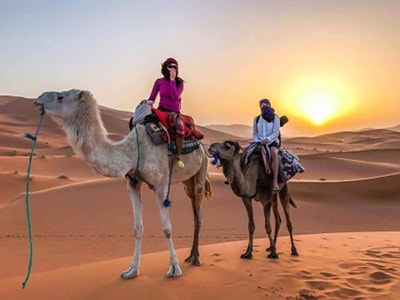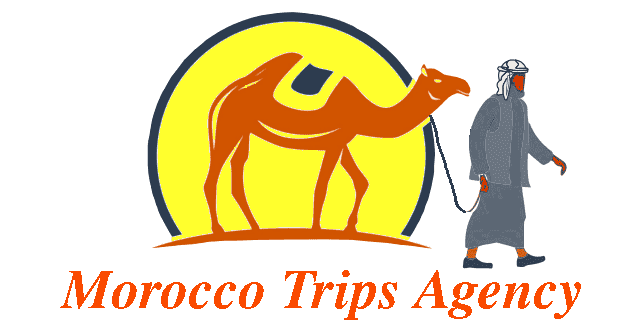1What is Morocco ?
With an extension of 446,550 km2 Morocco has approximately 36 million inhabitants. The country’s largest city is Casablanca, with just under 6.5 million inhabitants. The capital is Rabat which, like Casablanca, is also located on the Atlantic coast. Marrakech, in the interior, is without a doubt one of the most important cities. Located at the foot of the Atlas Mountains, it is one of Morocco’s four imperial cities; it has the largest traditional market in the country and one of the busiest squares in Africa and the world.
2Will I need a VISA to enter Morocco?
If you are a citizen of the United States, Canada or the British Empire, the answer is “no.” All other clients should consult the Moroccan Embassy or Consulate in their country or you may refer to the following website http://www.moroccanconsulate.com/visa.cfm
3What is Morocco’s currency called?
The Moroccan currency called the DIRHAM. Rates vary little between banks, but some banks charge a fee for currency exchanges which can add up to a considerable sum with the smaller denominations. Major credit cards are accepted in the larger hotels and all big shops. ATM cards can be used in many cities even in the south. Traveler’s cheques are not widely accepted in Morocco anymore and they can be difficult to cash or exchange and only for a very limited amount. Use a money belt for all your valuable papers, checks, passport and credit cards.
4Would it be wise to bring some sort of “remedy” for stomach discomfort?
Yes. While the food in general and municipal water supplies in Morocco are perfectly safe, one never knows how your body’s “system” will react to new and unusual foods or different water supplies. Therefore, it is always wise to keep with you some sort of “stomach remedy” such as Pepto-Bismol, Imodium AD, etc. at all times.
5What is the food like?
In a word, delicious. Salads are lovely; fresh, succulent vegetables served with the light vinaigrette on the side. Harira is the Moroccan word for a thick vegetable soup. A particularly delicious one contains a bread dumpling. Main courses are usually one of the following: grilled meat on skewers often served with French fries; couscous, vegetarian or meat with vegetables; and Tagine, the Moroccan stew, usually meat, tomatoes, potatoes, onions, and spices. Moroccan cooks use a mélange of spices such as cumin, turmeric, paprika, saffron and pepper for a subtly flavored cuisine. In the Sahara, you can find ‘Berber pizza’. This is a double crusted pie filled with meat, hard boiled eggs, almonds, and spices. Sometimes rather peppery, Berber pizza is best eaten with glass after glass of hot, sweet, mint tea.
6Is safe to travel in Morocco?
Yes, it is very safe, Morocco is the embodiment of one of the safest countries in the world, thanks to the combination of the country where the crime rate is very low and its government that is always proactive in protecting their guests and locals.
7Travel Documentation to bring
You are responsible for ensuring that you have a valid international passport with a minimum 6 (six) months' validity . It is the sole responsibility of the tour participant to ensure that all passport and visa requirements are met prior departure.
8Do I need travel insurance in Morocco?
Travel insurance should be obtained before leaving your country of origin. We never force anyone to purchase it however. Local hospitals have limited diagnostic capability. Foreign clinics can be expensive, evacuation can cost thousands, luggage can disappear, so insurance is a good idea.
9Would it be wise to bring some sort of remedy for stomach discomfort?
Yes. While the food in general and municipal water supplies in Morocco are perfectly safe, one never knows how your body’s system
will react to new and unusual foods or different water supplies. Therefore, it is always wise to keep with you some sort of stomach remedy
such as Pepto-Bismol, Imodium AD, etc. at all times.
10What is the food like?
In a word, delicious. Salads are lovely; fresh, succulent vegetables served with light vinaigrette on the side. Harira is the Moroccan word for a thick vegetable soup. A particularly delicious one contains a bread dumpling. Main courses are usually one of the following: grilled meat on skewers often served with French fries; couscous, either vegetarian or meat with vegetables; and Tagine, the Moroccan stew, usually meat, tomatoes, potatoes, onions and spices. Moroccan cooks use a mélange of spices such as cumin, turmeric, paprika, saffron and pepper for a subtly flavored cuisine. In the Sahara you can find ‘Berber pizza’. This is a double crusted pie filled with meat, hard boiled eggs, almonds and spices. Sometimes rather peppery, Berber pizza is best eaten with glass after glass of hot, sweet, mint tea.
Every seaport has freshly caught fish prepared by the fishermen on or near the piers. Do not miss this treat! Fresh fruit is served for dessert; pomegranates, melons, bananas, apples, oranges and dates all produced in Morocco and all bursting with flavor. One ongoing benefit of the French occupation are the fresh baguettes available nearly everywhere. Pastries both French and Moroccan are available in the many bakeries.
11How should I behave?
It is the Clients’ responsibility to ensure that he and the members of his Party do not behave in a way which causes offence or danger to others or which risks damage to property belonging to others. In such circumstances all suppliers (e.g. hotel managers) and the Company have the right to terminate arrangements made on the Clients’ behalf, in which case the Company’s responsibility to the Client ceases immediately. Therefore, the Company will not be liable for any refunds, payment of compensation or reimbursement of any cost or expenses incurred as a result. Further, the Client will be liable to reimburse the Company for any expenses whatsoever that it incurs as a result of such behaviour.
12Who should I tip?
It is customary to tip for good service in Morocco, as you would at home. Tourism is a key pillar in Morocco's economy, and many people depend on tips to supplement their wages, but you should not feel pressured to tip anyone if you are not satisfied with the service you have received.
13Drivers
Drivers cannot legally act as a guide in the cities i.e. Marrakech and Fes etc. where we hire in local City Guides licensed by the Ministry of Tourism for walking tours. Your driver can however accompany you outside of the vehicle in the countryside i.e. on a tour between Marrakech and Fes. In the desert we hire in a local Camel Guide who best knows how to look after camels and the ways of the desert.
When there is a natural break in a tour i.e. free day(s) in Marrakech or elsewhere with no vehicle and driver, we do not guarantee the same driver after the break. Similarly we do not guarantee the same driver for airport transfers.
Wearing seat belts is compulsory in Morocco and for your safety you should use them. If you choose not to wear them, and the police stop the vehicle, you will be asked to pay the fine in fairness to the driver.
14Will my laptop work in Morocco?
Laptops and electronics from USA or Europe will usually work in Morocco, assuming to have access to an electric plug adapter, European French adapter, this one can be purchased in all major electronics stores.
15Will I have internet access in Morocco?
Internet cafes are widely popular in Morocco, making it easy for visitors to access the internet. Internet Café's generally open early and close late, and usually charge approximately 3-5 Dirhams per hour. Many hotels also offer wireless access.
16How Do I Secure My Booking?
In order to begin the booking process, our agency requires a deposit of 30% from the total amount. Once we have received this deposit, we begin the booking of the hotels and transportation and all tour details.
The remaining balance can be paid to your driver upon pick up from your Hotel/Riad/airport .
17How Do You Accept Payment?
We accept payment by Paypal. PayPal is the faster, more secure way to pay online. our agency requires a deposit of 30% from the total amount. Once we have received this deposit, we begin the booking of the hotels and transportation and all tour details to secure your booking
18Can I cancel a reservation?
our agency requires a deposit of 30% from the total amount. Once we have received this deposit by Paypal, we begin the booking of the hotels and transportation and all tour details to secure your booking.
so if you want to cancel a reservation you should contact us in less than 24 hours after you have send your deposit, so we can cancel all the reservations, and we are going to refund you 100% of your deposit (exclude paypal fees)




